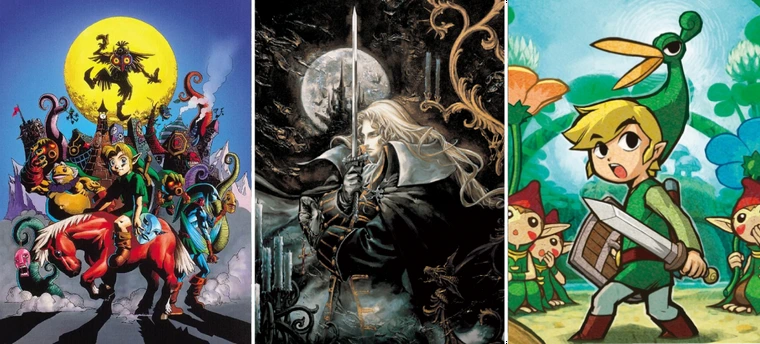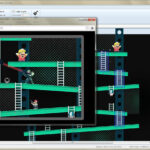Have you ever wondered what happens when the code behind your favorite video games is stripped down and laid bare? Welcome to the fascinating world of decompiled games. This realm invites players to explore familiar titles from a fresh perspective, revealing hidden intricacies and alternate experiences. Whether you’re a curious gamer or an aspiring developer, understanding decompiled games opens up new horizons in gaming culture. As we dive deeper into this topic, get ready to uncover the secrets of these digital treasures and learn how they shape the gaming landscape today.
What are Decompiled Games?
Decompiled games are essentially the original titles that have been reverse-engineered. This process involves taking compiled code—often written in languages like C++ or Java—and converting it back into a more understandable format.
What does this mean for gamers? It allows access to game mechanics, assets, and even unused content that may not have made it into the final version. The experience can feel like peeling back layers of an onion, revealing hidden gems beneath.
These decompiled versions often serve as educational tools for developers too. By studying how popular games operate at their core, aspiring programmers gain invaluable insights into design choices and coding practices used by industry professionals.
While some might view decompilation as merely a fun way to revisit classics, its implications stretch far beyond nostalgia. It fosters innovation and creativity within both the gaming community and software development at large.
The History and Evolution of Decompiled Games
The journey of decompiled games began in the early days of gaming. As consoles and PCs emerged, so did the desire to explore their inner workings. Enthusiasts discovered ways to reverse-engineer game code, revealing hidden mechanics and features.
In the late 1990s, this practice gained momentum with the rise of homebrew communities. Gamers sought out old classics, wanting to breathe new life into them through modifications or remakes. The advent of faster computers made decompiling more accessible.
By the 2000s, tools for decompilation became widely available. This enabled even novice programmers to dive into existing games’ architectures. A plethora of forums sprang up where individuals shared their findings and discussed techniques.
As technology advanced further, mobile gaming introduced a new wave of interest in Decompiled titles. Today’s enthusiasts continue evolving these practices while preserving beloved classics for future generations to enjoy.
Legal Issues Surrounding Decompiled Games
Decompiled games exist in a gray area of copyright law. While reverse engineering can be seen as a way to understand and modify software, it often conflicts with the rights of original creators.
Many game developers invest significant resources into creating their titles. When someone decompiles their work without permission, it raises ethical questions about ownership and creativity.
Legal actions have been taken against individuals who distribute decompiled games. Companies argue this undermines their intellectual property rights. They fear revenue loss due to unauthorized copies circulating freely online.
Despite these concerns, some communities advocate for the preservation of old games through decompilation. They see it as a means to keep classic titles alive that would otherwise fade into obscurity.
Navigating these legal waters requires caution. Engaging with decompiled content can lead to potential repercussions for both players and developers alike.
Popular Examples of Decompiled Games
Decompiled games have garnered attention for their unique adaptations of classic titles. One standout example is “Doom,” which has been deconstructed and modified countless times, leading to innovative gameplay experiences. Fans love tweaking the original mechanics while maintaining its iconic aesthetic.
Another notable mention is “Super Mario 64.” Enthusiasts have reverse-engineered this beloved platformer, allowing players to explore new worlds and challenges that were never part of the initial release.
“Pokemon Red/Blue” also features in many lists of decompiled games. The community has taken these classics and expanded upon them, creating numerous fan-made versions with fresh storylines and characters.
These examples showcase how creativity thrives within the realm of decompilation, breathing new life into cherished titles while inviting others to join in on the fun.
How to Play and Access Decompiled Games
To dive into the world of decompiled games, you first need to find a reliable source. Websites dedicated to retro gaming often host these titles. A simple search for “list of decompiled games” can lead you to forums and repositories where enthusiasts share their favorites.
Once you’ve found a game, you’ll likely need an emulator. This software mimics the original console’s hardware on your device. Popular options include ZSNES for SNES titles or PCSX2 for PlayStation 2 games.
Downloading is usually straightforward, but make sure you trust your sources to avoid malware. After obtaining the ROM file, load it into your emulator and start playing.
Additionally, consider joining online communities focused on retro gaming or decompilation projects. They can offer guidance and updates on new releases or techniques for better gameplay experiences.
Community and Culture Surrounding Decompiled Games
The community surrounding decompiled games thrives on a shared passion for gaming and nostalgia. Enthusiasts often gather in online forums, Discord servers, and social media platforms to discuss their favorite titles. This camaraderie fosters a vibrant culture where knowledge is exchanged.
Members frequently share guides, tips, and tricks related to playing or modifying these games. The creativity within this community is impressive many fans create mods that enhance gameplay or restore lost features from original releases.
Events like game jams are popular too. Developers come together to reinterpret classic titles using decompiled assets. These projects showcase the talent present in the community while paying homage to beloved games.
Fans also preserve history through archiving efforts. They ensure that old classics don’t fade into obscurity by maintaining repositories of decompiled content. This dedication keeps the spirit of retro gaming alive for future generations to experience and enjoy.
Pros and Cons of Playing Decompiled Games
Playing decompiled games offers a unique experience for many. One major advantage is the ability to access classic titles that may no longer be available through official channels. Fans can relive nostalgia or discover hidden gems from their childhood.
However, there are downsides too. Decompiled games often come with bugs and glitches due to the reverse-engineering process. This can lead to frustrating gameplay experiences.
Another benefit is community engagement. Players often share insights, mods, and patches that enhance these games further. It fosters a sense of belonging among fans who appreciate retro gaming.
On the flip side, decompiled games raise ethical questions about intellectual property rights. Developers lose revenue when players opt for free versions instead of purchasing originals.
Navigating this landscape requires careful consideration of what playing these games entails—both socially and legally.
Conclusion
The world of decompiled games offers a fascinating glimpse into the intersection of gaming, coding, and community. From understanding what these games are to navigating the legal complexities surrounding them, it’s clear that this niche has grown significantly over time.
As you explore popular titles and access various platforms for playing these games, you’ll find an enthusiastic community eager to share their experiences. While there are undeniable advantages—like nostalgia and enhanced gameplay features—there are also drawbacks worth considering.
Whether you’re a seasoned gamer or just curious about this intriguing territory, diving into the list of decompiled games opens up new avenues for enjoyment and engagement. With each game comes not only entertainment but also a rich history shaped by passionate developers and players alike.



